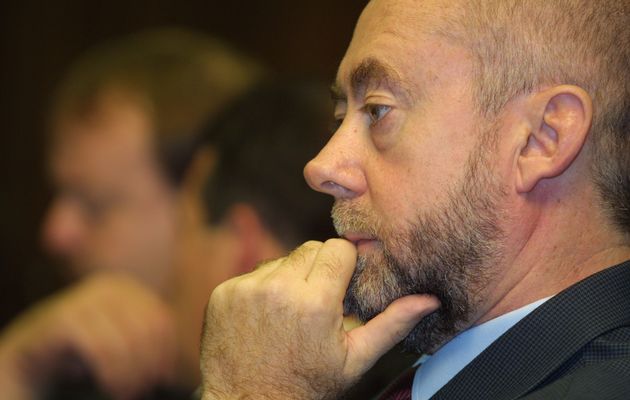A court interdict that halted cardiologist Dr Wouter Basson’s sentencing proceedings at the HPCSA should be set aside, the High Court in Pretoria heard on Thursday.
“The order issued by Judge (Selby) Baqwa should be discharged and set aside,” Health Professions Council of SA (HPCSA) lawyer Terry Motau said.
Basson, who was not in court on Thursday, obtained an interdict earlier this week preventing the HPCSA’s professional conduct committee from continuing to sentence him for unethical conduct. He argued that two of its members were biased.
Cilliers alleges chairman Prof Frikkie Hugo and committee member Prof Roland Edgar Mhlanga supported a petition by the SA Medical Association to remove Basson from the medical practitioners’ roll. Basson wants Hugo and Mhlanga to recuse themselves from the committee. Motau said Basson could have raised the matter formally with the committee.
In his answering affidavit, Hugo stated he was a member of two organisations, the SA Medical Association, which compiled the petition, and the Rural Doctors Association of SA (Rudasa).
“I did not participate in the process of the compilation of the petitions. I also did not sign any of them… the reason thereof is simple — I could not allow myself to be influenced by and participate in the process relevant to the issues to be determined in the proceedings, which were occurring outside the hearing.”
Hugo said he last associated with Rudasa three years ago. Mhlanga, a retired obstetrician, indicated in his affidavit that he was not a member of either organisation, and that he did not sign any petitions. Judge Bert Bam asked Motau if Hugo knew about the petition and whether it would have “contaminated” his mind.
“That would be speculation because the issue was not dealt with factually… They just said he belonged to the association but did not provide further facts.”
He asked the court to dismiss the matter with costs. In December 2013, the HPCSA found Basson guilty of unprofessional conduct following an eight-year long inquiry. The inquiry was held to determine whether Basson acted unethically during his work on the apartheid government’s chemical and biological weapons project, Project Coast, during the 1980s and early 1990s.
Basson, in his defence, claimed he had acted as a soldier and not a doctor.
Basson was accused of acting unethically by being involved in the large-scale production of Mandrax, cocaine and teargas, of weaponising teargas, and of supplying it to Angola’s Unita leader Jonas Savimbi.
He was accused of acting unethically by providing disorientating substances for cross-border kidnappings and making cyanide capsules available for distribution to operatives for use in committing suicide.
In 2002, Basson was acquitted by the High Court in Pretoria of criminal charges arising from his conduct.
The HPCSA reviewed the judgment to establish if there were grounds to hold an inquiry. The State appealed against the decision of the high court in the Supreme Court of Appeal, but the appeal was dismissed.
The State then went to the Constitutional Court, but that case was dismissed in September 2005. SAPA






 WhatsApp us
WhatsApp us 

